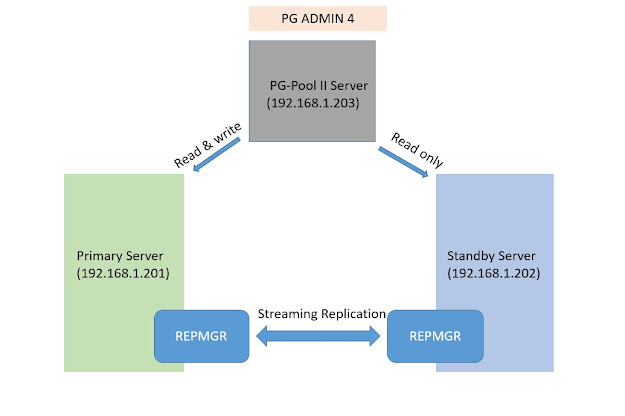What is PostgreSQL? Feautures,Advantages and History
PostgreSQL Definition:
PostgreSQL is a object-relational database Management
system. PostgreSQL is free and open source software. Its source code is
available under PostgreSQL license, a liberal open source license. You are free
to use, modify and distribute PostgreSQL in any form.
PostgreSQL supports advanced data types and advance performance
optimization, features only available in the expensive commercial database,
like Oracle and SQL Server. It supports both SQL for relational and JSON for
non-relational queries.
PostgreSQL Features:
- User-defined types
- Table inheritance
- Locking mechanism
- Foreign key referential integrity
- Views, rules, sub query
- Auto Commit & Nested transactions (savepoints)
- Multi-version concurrency control (MVCC)
- Asynchronous and Synchronous replication
- Tablespaces
- Point-in-time recovery
PostgreSQL Advantages:
1. Open Source DBMS
Only PostgreSQL provides enterprise-class performance
and functions among current Open Source DBMS with no end of development
possibilities. Also, PostgreSQL users can directly participate in the community
and post and share inconveniences and bugs.
2. Diverse Community
One of the characteristics of PostgreSQL is that there
are a wide variety of communities. Regarding PostgreSQL as Open Source DBMS,
users themselves can develop modules and propose the module to the community.
The development possibility is superiorly high with collecting opinions from
its own global community organized with all different kinds of people.
Collective Intelligence, as some might call it, facilitates transmission of
indigenous knowledge greatly within the communities.
3. Function
SQL functions called ‘Store Procedure’ can be used for
server environment. Also, we support languages similar to PL/SQL in Oralcle
such as PL/pgSQL, PL/Python, PL/Perl, C/C++, and PL/R.
4. ACID and Transaction
PostgreSQL support ACID(Atomicity, Consistency, Isolation, Durability).
5. Diverse indexing techniques
PostgreSQL not only provides B+ tree index techniques,
but various kinds of techniques such as GIN(Generalized Inverted Index), and
GiST(Generalized Search Tree), etc as well.
6. Flexible Full-text search
Full-text search is available when searching for
strings with execution of vector operation and string search.
7. Diverse kinds of replication
PostgreSQL supports a variety of replication methods
such as Streaming Replication , Slony-I, and cascading.
8. Diversified extension functions
PostgreSQL supports different kinds of techniques for
geographic data storage such as PostGIS, Key-Value Store, and DBLink.
History of PostgreSQL:
PostgreSQL was created at UCB (University of
California at Berkeley) by a computer science professor named Michael
Stonebraker. It was originally called Postgres.
It was started in 1986 by
professor stonebreaker as a follow-up project and a post Ingres project to
overcome with the problems of contemporary database system.
1977-1985: A project called INGRES was developed
1986-1994: POSTGRES
1994-1995: Postgres95
PostgreSQL 6.0 in 1996
Version
|
Current minor
|
Supported
|
First Release
|
Final Release
|
6.3
|
6.3.2
|
No
|
March 1, 1998
|
March 1, 2003
|
6.4
|
6.4.2
|
No
|
October 30, 1998
|
October 30, 2003
|
6.5
|
6.5.3
|
No
|
June 9, 1999
|
June 9, 2004
|
7.0
|
7.0.3
|
No
|
May 8, 2000
|
May 8, 2005
|
7.1
|
7.1.3
|
No
|
April 13, 2001
|
April 13, 2006
|
7.2
|
7.2.8
|
No
|
February 4, 2002
|
February 4, 2007
|
7.3
|
7.3.21
|
No
|
November 27, 2002
|
November 27, 2007
|
7.4
|
7.4.30
|
No
|
November 17, 2003
|
October 1, 2010
|
8.0
|
8.0.26
|
No
|
January 19, 2005
|
October 1, 2010
|
8.1
|
8.1.23
|
No
|
November 8, 2005
|
November 8, 2010
|
8.2
|
8.2.23
|
No
|
December 5, 2006
|
December 5, 2011
|
8.3
|
8.3.23
|
No
|
February 4, 2008
|
February 7, 2013
|
8.4
|
8.4.22
|
No
|
July 1, 2009
|
July 24, 2014
|
9.0
|
9.0.23
|
No
|
September 20, 2010
|
October 8, 2015
|
9.1
|
9.1.24
|
No
|
September 12, 2011
|
October 27, 2016
|
9.2
|
9.2.24
|
No
|
September 10, 2012
|
November 9, 2017
|
9.3
|
9.3.25
|
No
|
September 9, 2013
|
November 8, 2018
|
9.4
|
9.4.26
|
Yes
|
December 18, 2014
|
February 13, 2020
|
9.5
|
9.5.23
|
Yes
|
January 7, 2016
|
February 11, 2021
|
9.6
|
9.6.19
|
Yes
|
September 29, 2016
|
November 11, 2021
|
10
|
10.14
|
Yes
|
October 5, 2017
|
November 10, 2022
|
11
|
11.9
|
Yes
|
October 18, 2018
|
November 9, 2023
|
12
|
12.4
|
Yes
|
October 3, 2019
|
November 14, 2024
|


nice post.
ReplyDeletejava online course
salesforce online course